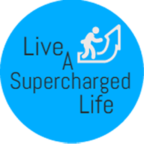Have you ever felt stuck after a breakup? It’s like you’re caught in a cycle of sadness and longing. But, you’re not alone. Moving past a breakup is tough, but it can also be a chance to grow and change.
In this article, we’ll look at the tough feelings after a breakup. We’ll share ways to heal and start a new chapter in your life. By the end, you’ll know how to not just get through it, but to come out stronger.
Key Takeaways
- Understand the common emotional responses to relationship loss and the stages of post-breakup grief.
- Learn how to manage overwhelming feelings and take the initial steps toward recovery.
- Discover the importance of setting healthy boundaries and rebuilding your identity as an individual.
- Explore practical self-care practices and therapeutic techniques to support your emotional healing.
- Rediscover personal growth and independence by exploring new interests and setting future goals.
Understanding the Emotional Impact of Relationship Loss
Ending a big relationship can feel like a wild ride. You might feel sad, angry, relieved, guilty, stressed, and anxious. These feelings are normal after a breakup.
Recognizing Common Emotional Responses
Breakups can be tough, making you feel many things. A 2020 study found that how much you grieve depends on the relationship’s intensity. Longer relationships can make grieving last longer because of all the memories and shared moments.
Research shows women might feel more pain after a breakup. Men might keep their feelings inside for longer. It’s key to face and deal with these emotions, not hide them.
The Stages of Post-Breakup Grief
Grieving after a breakup is a personal journey with no set time limit. Therapists say trying to ignore these feelings can make things worse. You might go through denial, anger, bargaining, sadness, and finally, acceptance.
Managing Overwhelming Feelings
When feelings get too much, having people to talk to is important. Studies show talking to family, friends, or groups can help you deal with a breakup. Taking care of yourself with mindfulness, meditation, and exercise can also help.
Everyone grieves differently, and getting help from a therapist can be helpful. It’s a place to talk about feelings, find ways to cope, and see things more clearly. With time and kindness to yourself, you can get through this and start healing.
When Relationships End: The Initial Steps to Recovery
Breaking up can feel really hard. But starting to heal and find closure is key. It’s important to accept that the relationship is over. This is the first step to rebuilding your life.
Try the cord-cutting visualization to help let go. It’s a way to break the connection with your ex. It helps you move on.
Start doing new things and finding who you are again. Every little step is progress. Be gentle with yourself during this time.
This is a chance to learn more about yourself. Embracing this new chapter can lead to great growth.
“The breakup of a relationship is a death in the family. It’s a loss, and with any loss, there is a grieving process.” – Claudia de Llano, LMFT
It’s important to feel your emotions, like shock or anger. Letting yourself feel is part of healing. It helps you accept and move on.
You’re not alone in this. Talk to friends or a therapist for support. Take care of yourself by doing things you love.
Finding closure and letting go takes time. But with patience, you’ll come out stronger. Use this chance to grow and find your true self.
Creating Healthy Boundaries After Separation
Life after a breakup can be tough. But setting healthy boundaries is key for your emotional health. It helps you move on. It’s easy to want to stay close to your ex online or through friends. But this can slow down your healing.
Setting Digital Boundaries and Social Media Guidelines
In today’s world, digital boundaries are important. Don’t keep checking your ex’s social media. Try to stay off social media or fill your feed with positive stuff. Your healing is most important.
Managing Mutual Friends and Social Circles
Dealing with friends you both know can be hard. Be careful how you interact with them. You might need to tell them you need time to heal. Respect their choice to stay friends with both of you. Focus on building your own circle of friends.
Establishing No-Contact Rules
A “No Contact” rule can help you heal. This means no talking to your ex at all. It’s hard at first, but it helps you move on. Get support from friends or a therapist to keep this rule.
Setting boundaries is caring for yourself. It lets you heal and move on in a good way.
“Boundaries are your best friends after a breakup. They create a space for you to grow and heal without constant reminders of your ex.”
Rebuilding Your Identity as an Individual
After a breakup, you might feel lost. But this is a chance to find out who you really are. You can start to see yourself in a new light.
Start by doing things you love. Maybe you’ve been wanting to try something new. Now is the time to do it.
- Explore new hobbies and creative outlets
- Rekindle old passions that you’ve put on the back burner
- Invest time in personal development, such as taking classes or reading inspiring books
Building your confidence is key. Celebrate your wins, no matter how small. This will help you see your strengths.
“The most courageous act is still to think for yourself. Aloud.” – Coco Chanel
You don’t have to face this alone. Friends and family can help a lot. They can give you the support you need.
This is your chance to start fresh. Be excited for what’s ahead. You’ll grow stronger and more confident.
Practical Steps for Emotional Healing
Getting over a breakup is tough, but you can get through it. You’ll come out stronger and more resilient. Here are some steps to help you heal and move on.
Therapeutic Techniques for Moving Forward
Getting help from a therapist is very helpful. They can help you deal with your feelings and find ways to cope. Things like cognitive-behavioral therapy and EMDR therapy can really help.
Self-Care Practices During Recovery
Self-care is key for your emotional health. Do things that make you feel good, like meditating or exercising. Treat yourself to small pleasures, like a nice bath or a good book. Be kind to yourself as you heal.
Journaling and Expression Methods
Writing down your feelings can help a lot. You can write, draw, or make poetry. It’s a way to express yourself and feel better. Try to journal often to release your emotions and learn more about yourself.
| Therapeutic Technique | Benefits |
|---|---|
| Cognitive-Behavioral Therapy (CBT) | Helps identify and challenge negative thought patterns, promoting healthier coping strategies. |
| Mindfulness-Based Interventions | Cultivate present-moment awareness and emotional regulation, reducing stress and anxiety. |
| EMDR Therapy | Efficiently processes traumatic memories, facilitating emotional healing and closure. |
Healing is not always easy, but it’s worth it. Be patient with yourself and trust the process. With the right help and care, you’ll come out stronger and wiser.
Life after a breakup feels like new territory. Moments once shared with your partner now have silence. Yet, this change is a chance for growth and healing.
Creating a new normal that feels right is key. You’ll come out stronger and more resilient.
Dealing with shared spaces and memories is tough. But it’s a chance to find yourself again. Start by making new rituals and enjoying small joys that are yours.
- Make a new daily routine that fits you.
- Remove reminders of your ex from your home. This lets you start fresh.
- Try new activities and hobbies you’ve always wanted to.
Every day is a chance to move forward and heal. Enjoy the freedom to live a life that makes you happy. With kindness and a positive attitude, you’ll get through this and come out stronger.
“The greatest weapon against stress is our ability to choose one thought over another.” – William James

Be gentle with yourself as you move on. Don’t be too hard on yourself. Celebrate every small win. Each step shows your strength and will to live a life that’s right for you.
Rediscovering Personal Growth and Independence
Ending a relationship can be a big change. It might hurt, but it’s also a chance to grow and learn about yourself. Now, you can try new things and find what makes you happy.
Exploring New Interests and Hobbies
Without the old relationship, you can focus on what makes you happy. You might start a new sport, learn music, or try art. Doing things alone can make you feel strong and sure of yourself.
- Try a new fitness class or outdoor adventure to challenge your body and mind
- Explore creative outlets like painting, writing, or photography to express your emotions
- Immerse yourself in a new hobby that sparks your curiosity, such as gardening, cooking, or learning a new language
Setting Future Goals and Aspirations
Now, you can dream big and set goals for your future. Maybe you want a new job, to travel, or to learn something new. Think about what you really want and make plans to get there. This will give you direction and make you feel in charge of your life.
| Goal | Timeline | Action Steps |
|---|---|---|
| Learn a new language | 6 months |
|
| Save for a solo trip abroad | 1 year |
|
| Start a small business | 2 years |
|
See this time as a chance to grow and be independent. There are so many things you can do. You’re ready to explore and find your path!
Building a Support System During Recovery
Healing and moving on after a breakup can feel tough. But you don’t have to face it alone. A strong support system is key during this time. With caring people around you, you’ll find the strength to get through it.
Talking to friends and family is a great start. Share your story and ask for their support. Their help, whether it’s listening or spending time together, can really help you heal.
- Find trusted friends and family for emotional support.
- Plan regular meet-ups or activities to keep these bonds strong.
- Think about getting help from a therapist or counselor.
Also, making new friends can help. Join a local support group or online community. These places offer a safe space to share and connect with others who get it.
“Surround yourself with people who remind you more of your future than your past.” – Unknown
Healing is a journey you don’t have to take alone. With a strong support system, you’ll have the help and encouragement to move forward and find a brighter future.

Learning from Past Relationships
Relationships have ups and downs. It’s key to look back and learn from them. By understanding our past, we can grow and have better relationships later.
Identifying Relationship Patterns
Look back at your past relationships. Notice any common themes or behaviors. This can help you understand what worked or didn’t.
Personal Growth Through Self-Reflection
Think deeply about your past relationships. Ask yourself what you did and how it affected things. This helps you grow and improve for the future.
People with tough pasts might find it hard to balance closeness and boundaries. Learning from the past helps you do better in future relationships.
Every relationship shapes you in its own way. Use these experiences to grow and find better relationships. The journey to growth and healing starts with understanding your past.
“The journey of a thousand miles begins with a single step.” – Lao Tzu
| Key Takeaways from Past Relationships | Importance |
|---|---|
| Prioritize self-care and self-worth in relationships | 80% |
| Cultivate open, honest communication and compromise | 27% |
| Ensure compatibility with partner’s family and friends | 13% |
| Maintain authenticity and be true to yourself | 80% |
| Seek partners who provide support, encouragement, and a sense of safety | 80% |
| Prioritize being treated well by a partner | 80% |
| Establish compatibility in lifestyles, values, and goals | 13% |
| Maintain a well-rounded social life outside the relationship | 40% |
| Approach physical intimacy with patience and thoughtfulness | 13% |
Conclusion
You’ve made great progress on your healing and self-discovery journey! We’ve looked at managing strong emotions and rebuilding your identity. You’ve also set new goals.
Remember, healing and growing isn’t always easy. But every step you take is progress. You are stronger than you think, and a bright future awaits you.
Keep moving forward and embracing your growth. Get ready for the amazing life ahead! This journey may be tough, but you can do it. Stay strong, kind to yourself, and focused on your well-being.
Wishing you the best as you start this new chapter. You have the power to create the life you want. Trust the process, honor your feelings, and stay open to new possibilities.
Your future is full of promise. You have the strength to make it everything you hope for.
FAQ
What are the common emotional responses to a breakup?
How can I manage the overwhelming feelings during a breakup?
What are the key steps to start the healing process after a breakup?
How can I set boundaries after a breakup?
How can I rediscover myself after a breakup?
What are some practical ways to heal emotionally after a breakup?
How do I adjust to daily life without my partner?
How can I embrace my newfound freedom after a breakup?
Why is it important to build a support system during my recovery?
How can I learn from my past relationships?
Check out my new podcast on “The Impact of One-Sided Love: Why It Hurts and How to Heal”
The entire article “The Impact of One-Sided Love: Why It Hurts and How to Heal”
https://www.liveasuperchargedlife.com/the-impact-of-one-sided-love/
Source Links
- https://tinybuddha.com/blog/ending-the-cycle-of-breaking-up-and-getting-back-together/
- https://www.psychologytoday.com/us/blog/laugh-cry-live/201803/breaking-up-when-youre-still-in-love-but-on-different-paths
- https://tinybuddha.com/blog/finally-letting-go-of-the-pain-moving-on-after-a-break-up/
- https://brightharbor.org/navigating-the-emotional-impact-of-ending-significant-relationships/
- https://psychcentral.com/relationships/coping-with-the-end-of-a-relationship
- https://www.helpguide.org/mental-health/grief/dealing-with-a-breakup-or-divorce
- https://psychcentral.com/pro/recovery-expert/2020/07/after-the-breakup-my-personal-recovery-plan
- https://jameshaggertyrecovery.com/blog/relationships-recovery/
- https://www.verywellmind.com/from-heartbreak-to-healing-navigating-the-7-stages-of-a-breakup-8552187
- https://themarriageplace.com/2023/06/setting-healthy-boundaries
- https://pearsonslawyers.com.au/setting-boundaries-during-separation/
- https://awakened-woman.com/2024/01/22/are-you-losing-your-identity-in-a-relationship/
- https://www.goalcast.com/i-lost-my-identity-in-my-relationship-then-i-found-myself-in-the-breakup/
- https://bioneurix.com/blogs/blog/10-steps-to-move-on-from-a-relationship?srsltid=AfmBOorcww-IoJJfYq-nCSYBardVoPoWKTZntc38HR_kNh6GBsg2K0PT
- https://justmind.org/navigating-the-aftermath-a-guide-to-healing-and-thriving-after-a-break-up/
- https://rcchicago.org/healing-from-heartbreak-10-tips-for-coping-with-a-traumatic-break-up/
- https://www.marriage.com/advice/relationship/ways-to-cope-after-relationship-end/
- https://matthewhussey.com/blog/the-no-contact-rule-explained/
- https://www.mcgill.ca/counselling/files/counselling/surviving_a_break-up_-_20_strategies_0.pdf
- https://vocal.media/humans/rediscovering-self-love-after-a-breakup-a-journey-to-healing
- https://manochikitsa.com/rediscovering-yourself-after-a-long-term-relationship-ends/
- https://www.addictions.com/blog/building-a-healthy-support-system-in-recovery/
- https://www.alpinerecoverylodge.com/solid-support-system-addiction-recovery/
- https://greenhousetreatment.com/blog/life-in-recovery/5-ways-to-build/
- https://www.elitedaily.com/dating/lessons-learned-past-relationships/1826761
- https://www.emilythebooknerd.com/2022/04/15-lessons-learned-from-past.html
- https://www.healthyhumansproject.com/how-to-not-let-past-relationships-affect-new-ones/
- https://www.loveisrespect.org/resources/ending-unhealthy-relationships/
- https://www.verywellmind.com/how-to-end-a-relationship-4173954



